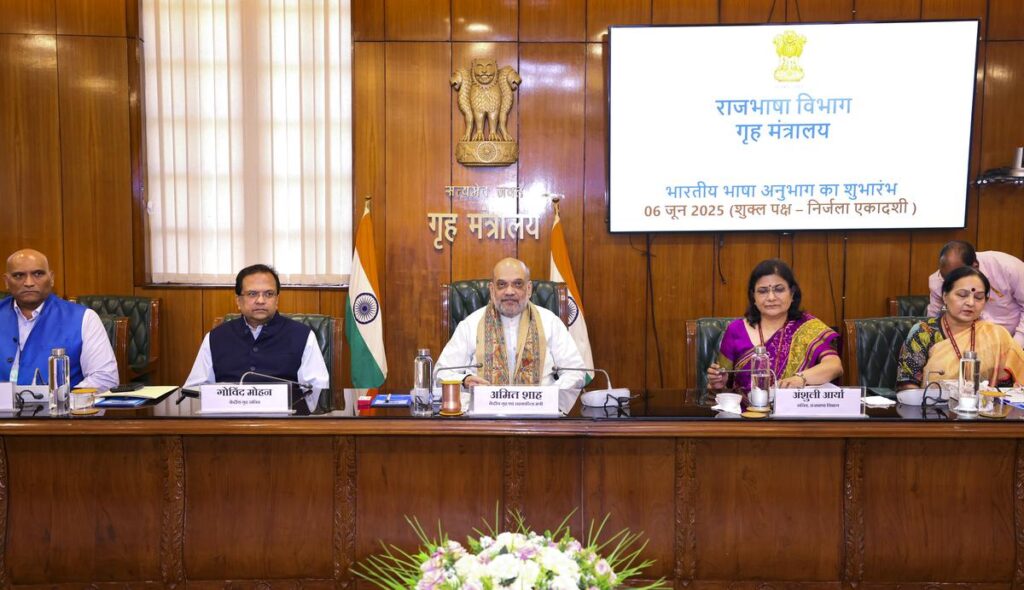In a significant step toward reshaping the linguistic character of India’s bureaucracy, Union Home Minister Amit Shah on Thursday inaugurated the ‘Bharatiya Bhasha Anubhag’, a new section within the Department of Official Language aimed at mainstreaming Indian languages in official communication.
Positioned as part of the government’s broader push to “decolonize the Indian mindset,” the initiative seeks to reduce dependency on English in administrative affairs by enabling real-time translation of official correspondence into regional languages. The move is being hailed by policymakers as a transformative effort to make governance more accessible and culturally rooted.
A Vision to Empower Through Language
“India can never fully realize its potential until thought and governance both occur in the languages of its people,” Shah declared at the inauguration event. He emphasized that governance through mother tongues would foster inclusivity and psychological empowerment.
The ‘Bharatiya Bhasha Anubhag’ (Indian Languages Section) has been developed in collaboration with the Centre for Development of Advanced Computing (C-DAC). Its key feature is a translation system that allows seamless, automatic conversion of official documents between Hindi and other major Indian languages, thus enabling inter-state communication without reliance on English.
Aligning with the National Education Policy
The language hub aligns closely with the National Education Policy 2020, which promotes learning and administration in regional languages. By bringing official documentation in sync with the linguistic preferences of each state, the government aims to improve civic engagement, educational equity, and administrative transparency.
The initiative is also designed to bridge gaps between the central government and non-Hindi speaking states—a subject of frequent political contention. Officials believe this system will foster greater cooperation and mutual respect among linguistic communities.
Decolonization as a Political Theme
This move is part of a broader ideological project led by the current administration to undo colonial-era structures. Over the past few years, similar efforts have included renaming roads, revising syllabi, and amending laws seen as vestiges of British rule.
Critics argue that such symbolism must be matched with institutional reforms and deeper investment in multilingual capacity building. Still, for many language activists and educators, the launch of ‘Bharatiya Bhasha Anubhag’ is an overdue and welcome affirmation of India’s diverse linguistic heritage.


